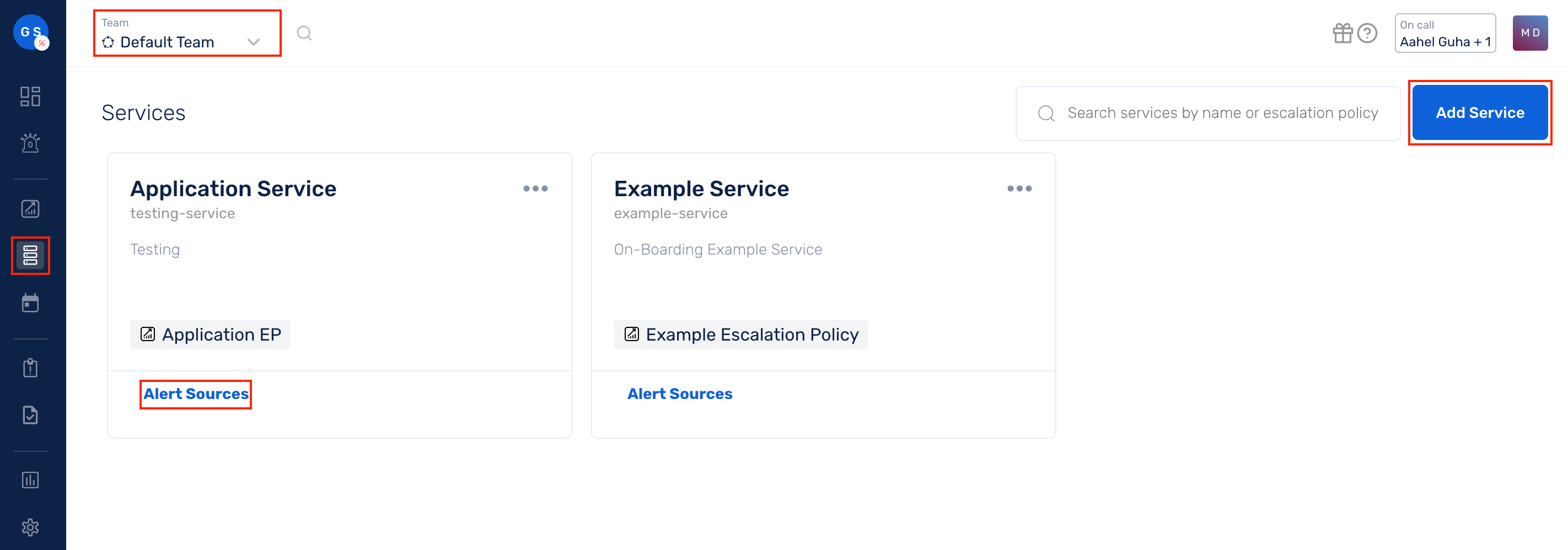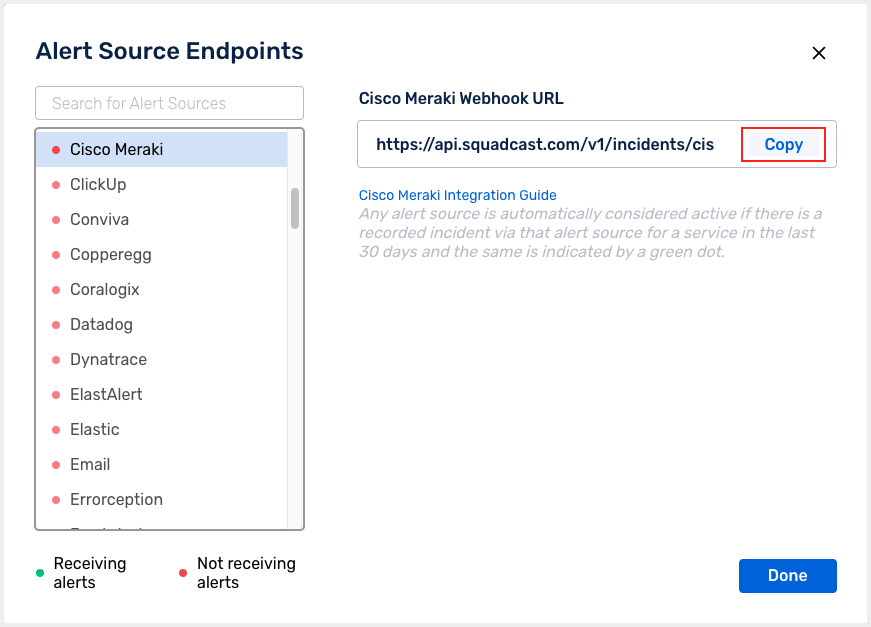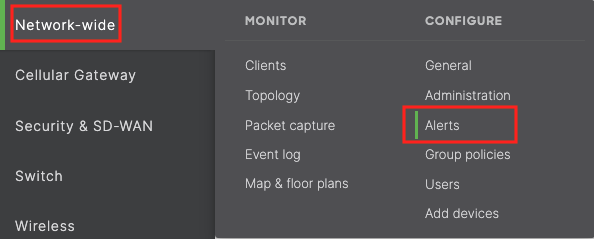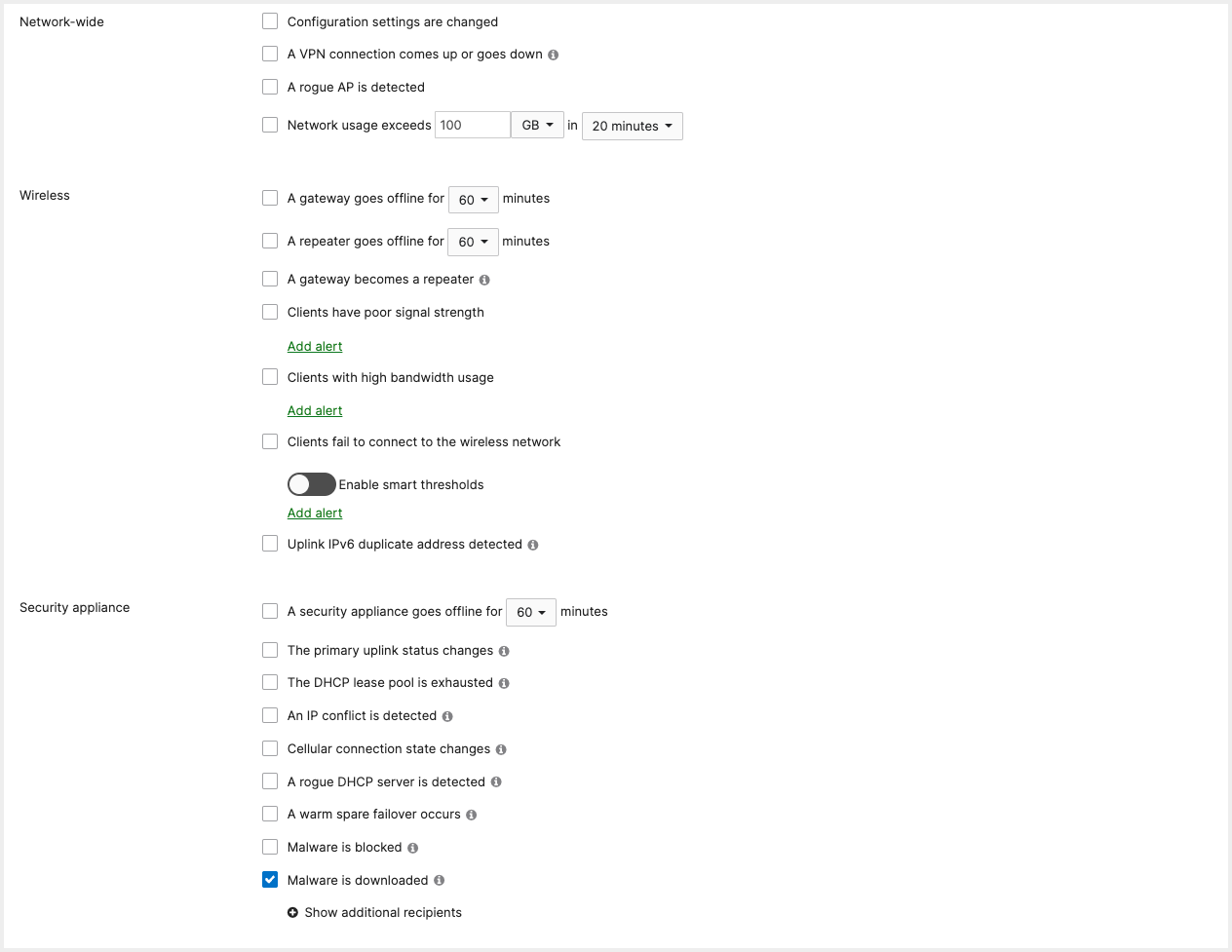Cisco Meraki
Cisco Meraki is a suite of internet-managed network solutions that enables a single source of management over locations, infrastructure, and devices. Meraki Webhooks provide a new way to subscribe to alerts sent from Meraki Cloud when an events occur.
Route detailed alerts from Cisco Meraki to the right users in Squadcast.
Using Cisco Meraki as an Alert Source
(1) From the navigation bar on the left, select Services. Pick the applicable Team from the Team-picker on the top. Next, click on Alert Sources for the applicable Service

(2) Search for Cisco Meraki from the Alert Source drop-down and copy the Webhook URL

For an Alert Source to turn active (indicated by a green dot - Receiving alerts against the name of the Alert Source in the drop-down), you can either generate a test alert or wait for a real-time alert to be generated by the Alert Source.
An Alert Source is active if there is a recorded incident via that Alert Source for the Service in the last 30 days.
Create a Squadcast Webhook URL REST Endpoint in Cisco Meraki
(1) Login to your Cisco Meraki dashboard. Head over to the Network-wide tab and click on Alerts

(2) Scroll to the bottom of the Alerts page, and click on Add an HTTP Server under the Webhooks section

(3) Here, fill in the Name. Paste the previously copied Squadcast Webhook URL in the placeholder for URL. Then, click on Save

(4) Scroll to the top of the Alerts page and add the newly created Webhook for Squadcast as a default recipient

(5) Select the events & parameters for triggering this webhook and the click on Save


That’s it, you are good to go! Your Cisco Meraki integration is now complete. Whenever Cisco Meraki fires an alert, an incident will be created in Squadcast for it.
Note:
Incidents will be triggered in Squadcast for the alerts that come in from Cisco Meraki with the key alertLevel having values critical, warning and informational.
Q: If an alert gets resolved in Cisco Meraki, does Cisco Meraki send auto-resolve signals to Squadcast?
A: No, Cisco Meraki does not send auto-resolve signals to Squadcast. Hence, Squadcast incidents from Cisco Meraki should be resolved manually.